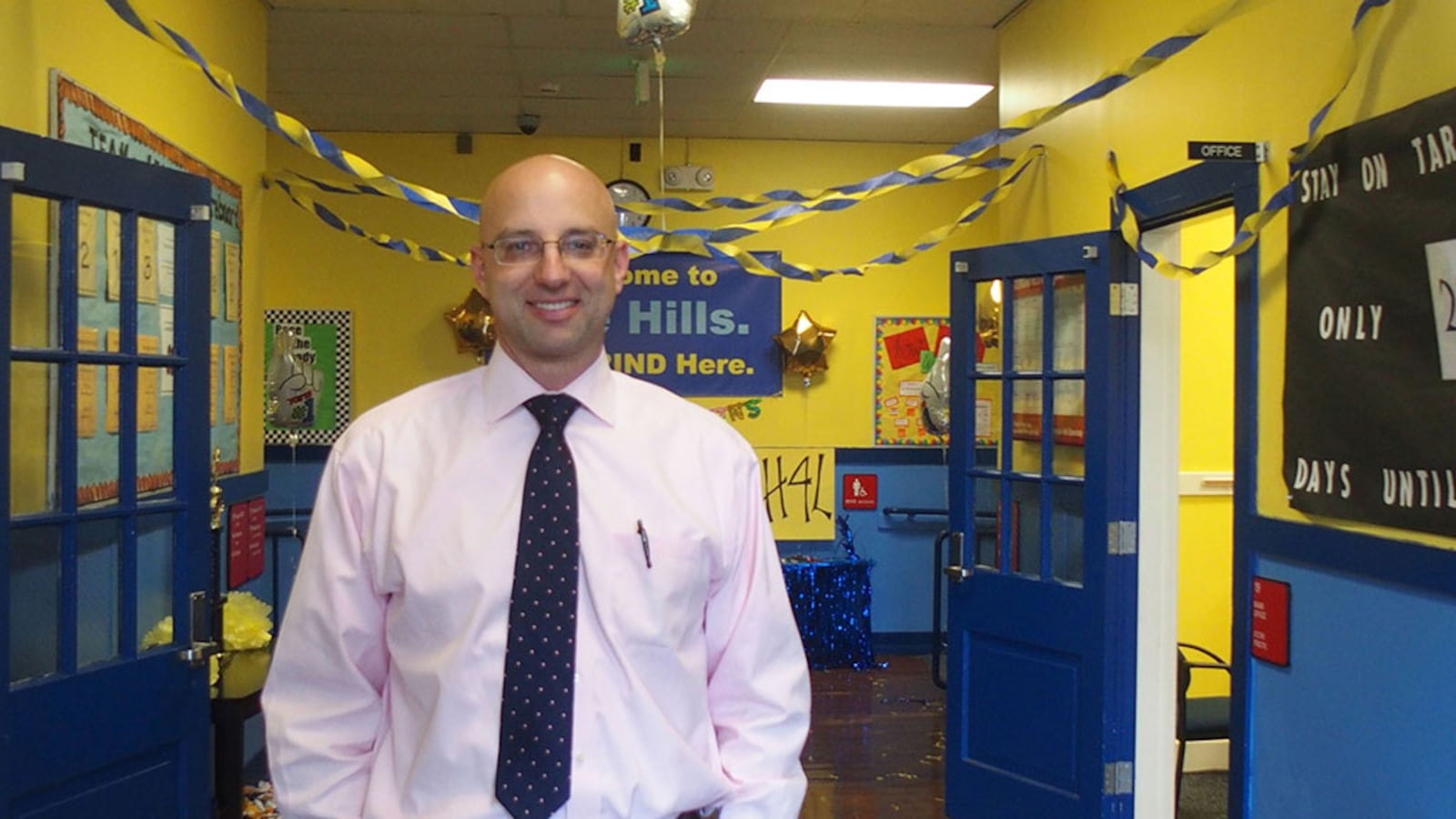Chris Barbic, the hard-charging superintendent of Tennessee’s school turnaround district, is resigning at the end of the year.
Now that the Achievement School District is no longer new, it needs a different leader, Barbic told senior officials on Thursday, according to multiple people who were informed about his departure plans. They said he also cited health reasons, including the 2014 heart attack that kept him out of work for weeks, for deciding to move on.
Barbic shared his news during a series of meetings and phone calls with ASD staff members on Thursday afternoon and evening, according to multiple people who said they were told not to discuss the change publicly before the district made an official announcement.
Barbic announced the news in an email to supporters early Friday morning.
Barbic’s impending departure comes at a time of transition for the district, which was formed with the ambitious goal of vaulting the state’s weakest schools into the top tier in just a few years. The state is just two weeks away from releasing test scores that he has said would be the first meaningful measure of whether the district is achieving that goal.
State education officials appointed Barbic to lead the ASD on the strength of his record as a charter operator in Texas when they formed the special district in 2012. Under his leadership, the state recruited charter operators to assume management of 22 schools, almost all in Memphis, that had been among the lowest-performing 5 percent in the state.
Unusually, the ASD asks charter operators to improve existing schools, rather than start new ones. The approach has drawn national attention because efforts to make low-performing schools better have stymied many districts.
In his email early Friday, Barbic offered a dim prognosis on that pioneering approach. “As a charter school founder, I did my fair share of chest pounding over great results,” he wrote. “I’ve learned that getting these same results in a zoned neighborhood school environment is much harder.”
Indeed, as the ASD has matured, it has experienced significant growing pains, including ones related to its student population — and its already formidable task is on the verge of growing more challenging.
Public protest contributed to several charter operators — including YES Prep, the network that Barbic founded in Houston — pulling out of agreements to take over schools under the ASD last year. (Last week, Barbic announced that the district is overhauling the way it involves communities in deciding how their schools should change.)
Meanwhile, test scores in year two suggested that dramatic gains were not underway, although Barbic said it was too soon to tell whether the school overhauls were working and that the extent of poverty in Memphis impeded change. “I think that the depth of the generational poverty and what our kids bring into school every day makes it even harder than we initially expected,” he told Chalkbeat last spring. “We underestimated that.”
The district faced a barrage of legislation designed to curb its growth last year from lawmakers unhappy about its tactics and sluggish academic results. “There’s 22 bills that have been filed right now to either try to kill this thing or pull it apart,” Barbic told lawmakers in February, “and this thing hasn’t even gotten out of the Petri dish.”
Most of those bills died, but two that passed benefited the district by expanding the number of students eligible to attend its schools and by allowing it to charge charter operators to run its schools.
A third bill that passed prohibits the ASD from intervening in low-performing schools where test scores are on the rise. That means the district could face greater challenges in showing test score gains at its schools in the future.
The pressure intensifies amid a looming budget crunch and shifting priorities among state education officials.
Tennessee used more than 10 percent of its $500 million windfall in federal education funds to launch the ASD. Those funds, which arrived through the Race to the Top competition to spur education policy changes, have now disappeared.
So has the commissioner who spearheaded the ASD’s creation and hired Barbic, Kevin Huffman, who resigned late last year. His replacement, Candice McQueen, has said she supports the initiative but wants it to become financially sustainable.
Dramatic test score gains and improved community relations would go farthest in justifying shifting the ASD’s management costs to taxpayers, which could be necessary in the future if its significant philanthropic support wanes. But both of those things have proved difficult to elicit so far.
By exiting the district, Barbic is clearing the way for someone else to take a stab at those persistent challenges. He told ASD officials that he hoped Malika Anderson, the district’s chief portfolio officer, would take over after he leaves, according to people who were part of the information rollout.
McQueen will appoint Barbic’s replacement. She declined to comment on Thursday.
Barbic — whose tenure will slightly exceed the average length for urban superintendents — is not the first ASD official to exit in recent months. Ash Solar, who ran the district’s schools in Memphis, and founding chief of staff Elliot Smalley have also recently moved on.
News of Barbic’s impending departure stirred anxiety about the future of the district on Thursday.
Stephanie Love, a Shelby County school board member and community activist who has publicly criticized the ASD, said she worried that his departure would erode already tenuous community relations.
“Even though I don’t agree with a lot of things the ASD has done, I will say Barbic made himself available for me to talk to him,” said Love, whose son attends an ASD school. “I was always able to let him know exactly how I felt and exactly how the community felt.”
This story has been updated to clarify aspects of the Achievement School District’s finances and to include additional details about recent legislation related to the ASD.


